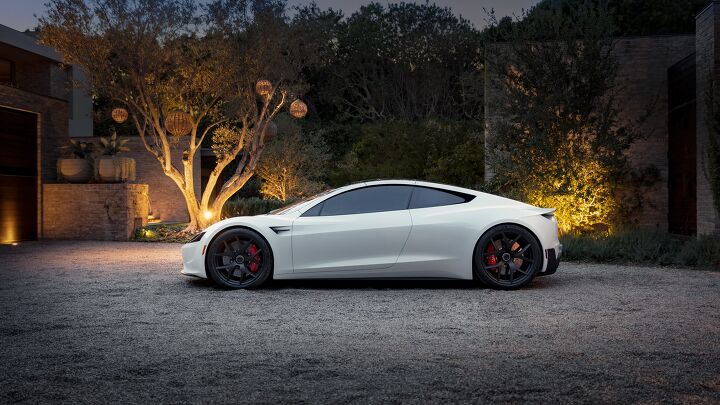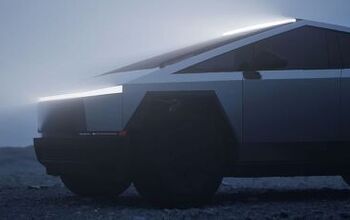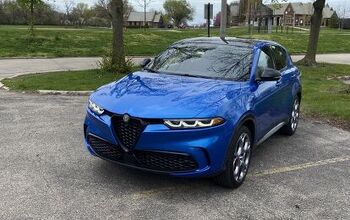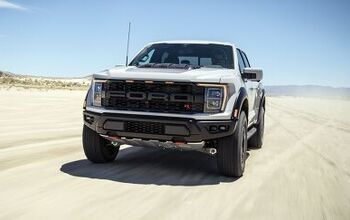Musk: Tesla Roadster Will Use SpaceX Tech and Have Rocket Boosters

Tesla presented the “new” Roadster back in 2017, but the car isn’t expected to officially launch until next year. CEO Elon Musk has made some big promises about the car, including that it could break the one-second 0-60 mph time barrier. We’re now hearing more grandiose claims about the car, with Musk saying that it would feature rocket technology thanks to a partnership with his other company, SpaceX.
Musk made the claims in an interview with former CNN personality Don Lemon, saying that a flying Roadster is “not out of the question.” Though the Cybertruck is having weird rust issues, Musk noted it as Tesla’s best vehicle but said the Roadster will outperform it.
“The only way to do something cooler than the Cybertruck is to combine SpaceX and Tesla technology to create something that’s not really a car. It’s going to be really cool. It’s going to have some rocket technology in it.” It’s worth noting that Musk also claimed the Cybertruck may be used as a boat, so this isn’t the first wild claim about a new Tesla model.
Hopeful buyers can reserve the Roadster with a massive $50,000 deposit, but the final price could exceed $200,000 if Musk’s earlier statements hold true. Before buying Twitter, he tweeted that the car would be available with a SpaceX package that adds 10 “small rocket thrusters arranged seamlessly around the car.” So, a flying, rocket-powered EV that is somehow street-legal. Right.
These are wild claims, and while Tesla has managed to deliver on some of Musk's promises, it has also fallen short in some instances. The Cybertruck did not land with the affordable price tag Musk claimed, and it’s not quite as bulletproof as initially expected. It’s also unclear how Tesla could integrate rockets with a road car and not face immediate lawsuits from YouTube idiots trying to see how quickly it can accelerate.
[Image: Tesla]
Become a TTAC insider. Get the latest news, features, TTAC takes, and everything else that gets to the truth about cars first by subscribing to our newsletter.

Chris grew up in, under, and around cars, but took the long way around to becoming an automotive writer. After a career in technology consulting and a trip through business school, Chris began writing about the automotive industry as a way to reconnect with his passion and get behind the wheel of a new car every week. He focuses on taking complex industry stories and making them digestible by any reader. Just don’t expect him to stay away from high-mileage Porsches.
More by Chris Teague
Latest Car Reviews
Read moreLatest Product Reviews
Read moreRecent Comments
- Mike-NB2 This is a mostly uninformed vote, but I'll go with the Mazda 3 too.I haven't driven a new Civic, so I can't say anything about it, but two weeks ago I had a 2023 Corolla as a rental. While I can understand why so many people buy these, I was surprised at how bad the CVT is. Many rentals I've driven have a CVT and while I know it has one and can tell, they aren't usually too bad. I'd never own a car with a CVT, but I can live with one as a rental. But the Corolla's CVT was terrible. It was like it screamed "CVT!" the whole time. On the highway with cruise control on, I could feel it adjusting to track the set speed. Passing on the highway (two-lane) was risky. The engine isn't under-powered, but the CVT makes it seem that way.A minor complaint is about the steering. It's waaaay over-assisted. At low speeds, it's like a 70s LTD with one-finger effort. Maybe that's deliberate though, given the Corolla's demographic.
- Mike-NB2 2019 Ranger - 30,000 miles / 50,000 km. Nothing but oil changes. Original tires are being replaced a week from Wednesday. (Not all that mileage is on the original A/S tires. I put dedicated winter rims/tires on it every winter.)2024 - Golf R - 1700 miles / 2800 km. Not really broken in yet. Nothing but gas in the tank.
- SaulTigh I've got a 2014 F150 with 87K on the clock and have spent exactly $4,180.77 in maintenance and repairs in that time. That's pretty hard to beat.Hard to say on my 2019 Mercedes, because I prepaid for three years of service (B,A,B) and am getting the last of those at the end of the month. Did just drop $1,700 on new Michelins for it at Tire Rack. Tires for the F150 late last year were under $700, so I'd say the Benz is roughly 2 to 3 times as pricy for anything over the Ford.I have the F150 serviced at a large independent shop, the Benz at the dealership.
- Bike Rather have a union negotiating my pay rises with inflation at the moment.
- Bike Poor Redapple won't be sitting down for a while after opening that can of Whiparse


































Comments
Join the conversation
I'm sure it will be really easy to insure a car with rockets of any kind installed. I heard the boosters were for countering lateral g force during cornering, and possibly for straight line braking. I can't wait to be "blown away" by one of these things! Sideways rocket jets on that thing pointed at ME in my convertible??? I'll slash your fkin tires if I see one on the street with real rockets on it. NOPE.
Elon Musk is a geek. When you make a car with prodigious torque you run into wheelspin so you develop much better traction control. So now we have hit the limits of tire adhesion. Going to 'first principles' and defining the 'problem' as "quicker acceleration" it's a natural step to employ reaction motors and hey why not reaction engines and what if we used air or water vapor and they were not only 'reusable' but 'rechargeable' and oh by the way "acceleration" isn't limited to one direction we could use this for braking or how about a full RCS and hey you know a vertical hop might come in handy because the roads are crumbling.
This is what you get when geeks have money and other geeks to bounce ideas off of.